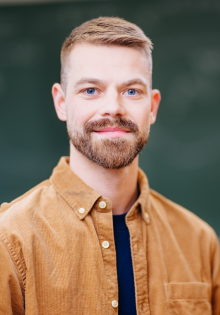Janik Kruse (Poznań)
Mourre theory and asymptotic observables in local relativistic quantum field theory
A fundamental task of scattering theory is the proof of asymptotic completeness, which is important for interpreting quantum theories in terms of particles. Significant advancements in the problem of asymptotic completeness have been made in many-body non-relativistic quantum mechanics throughout the 20th century. However, asymptotic completeness in local relativistic quantum field theory (QFT) remains an open problem. In quantum mechanics, many proofs of asymptotic completeness rely on the convergence of asymptotic observables. In QFT, Araki-Haag detectors have been identified as natural asymptotic observables, but their convergence remains a difficult problem. Relatively recently, Dybalski and Gérard (2014, doi:10.1007/s00220-014-2069-y) made progress in this area by translating quantum mechanical propagation estimates to QFT. They covered products of multiple detectors sensitive to particles with distinct velocities, but they did not manage to establish the convergence of a single detector due to a missing low-velocity propagation estimate. Typically, such an estimate is proved through Mourre’s conjugate operator method — a technique which so far resisted any extension from quantum mechanics to QFT. In this talk, I present a recent publication (arXiv:2311.18680), in which we managed to apply Mourre’s method to QFT through Haag-Ruelle scattering theory. This allowed us to prove the convergence of a single Araki-Haag detector on states of bounded energy below the three-particle threshold.
In case you want to participate online, please contact Benjamin Hinrichs.

